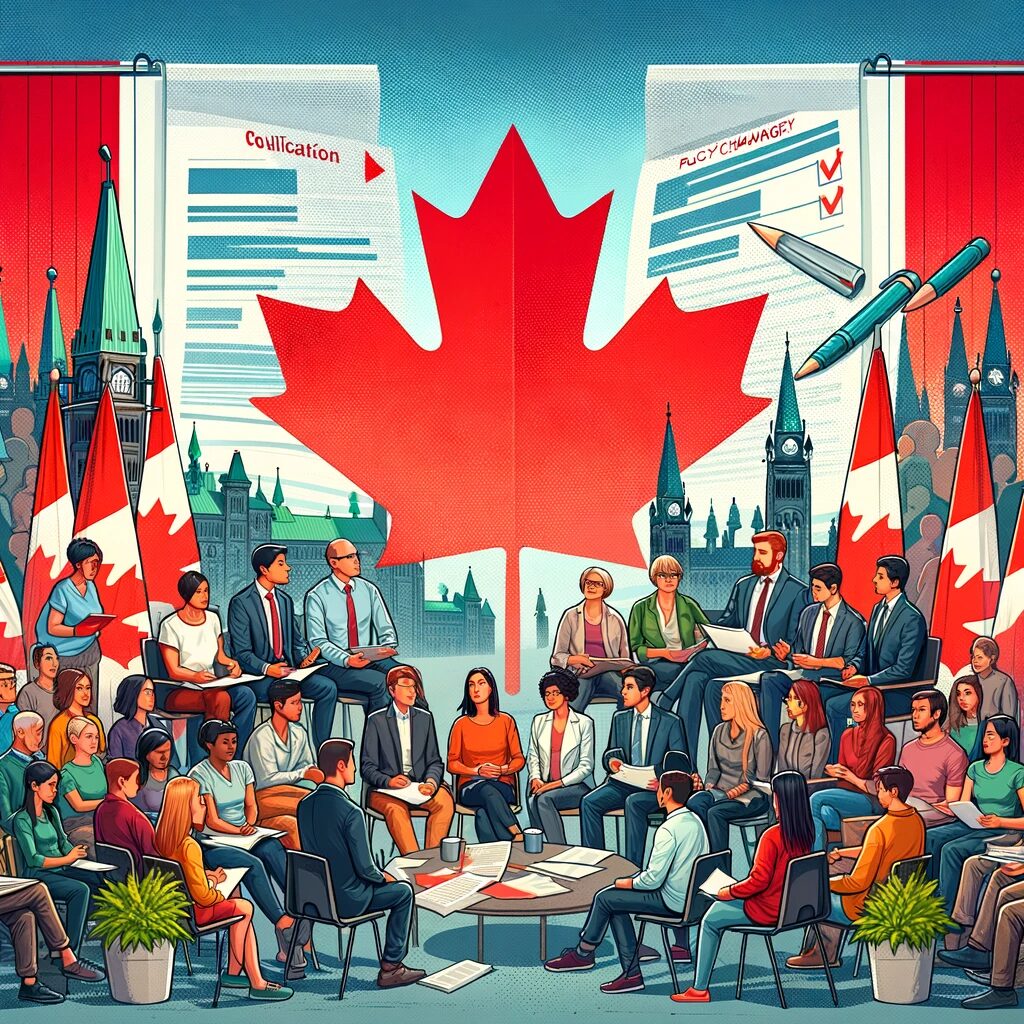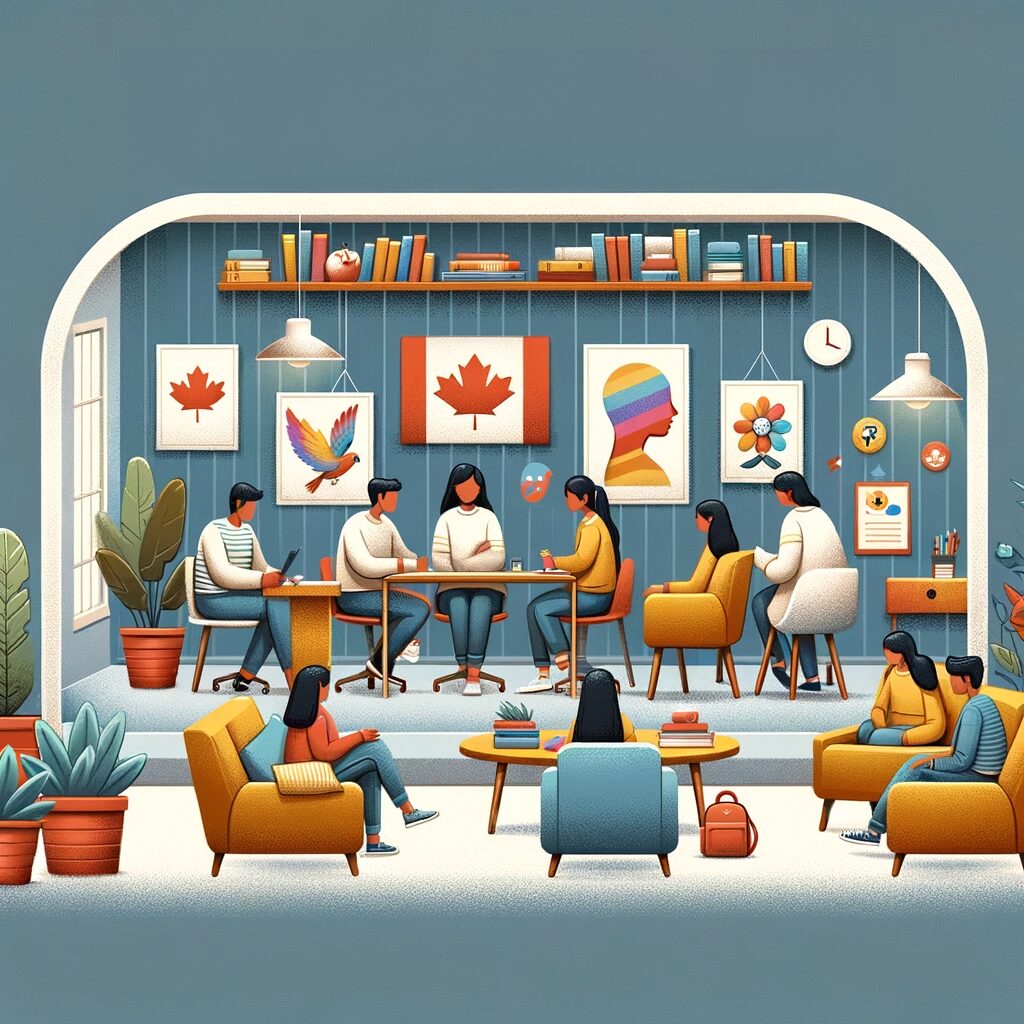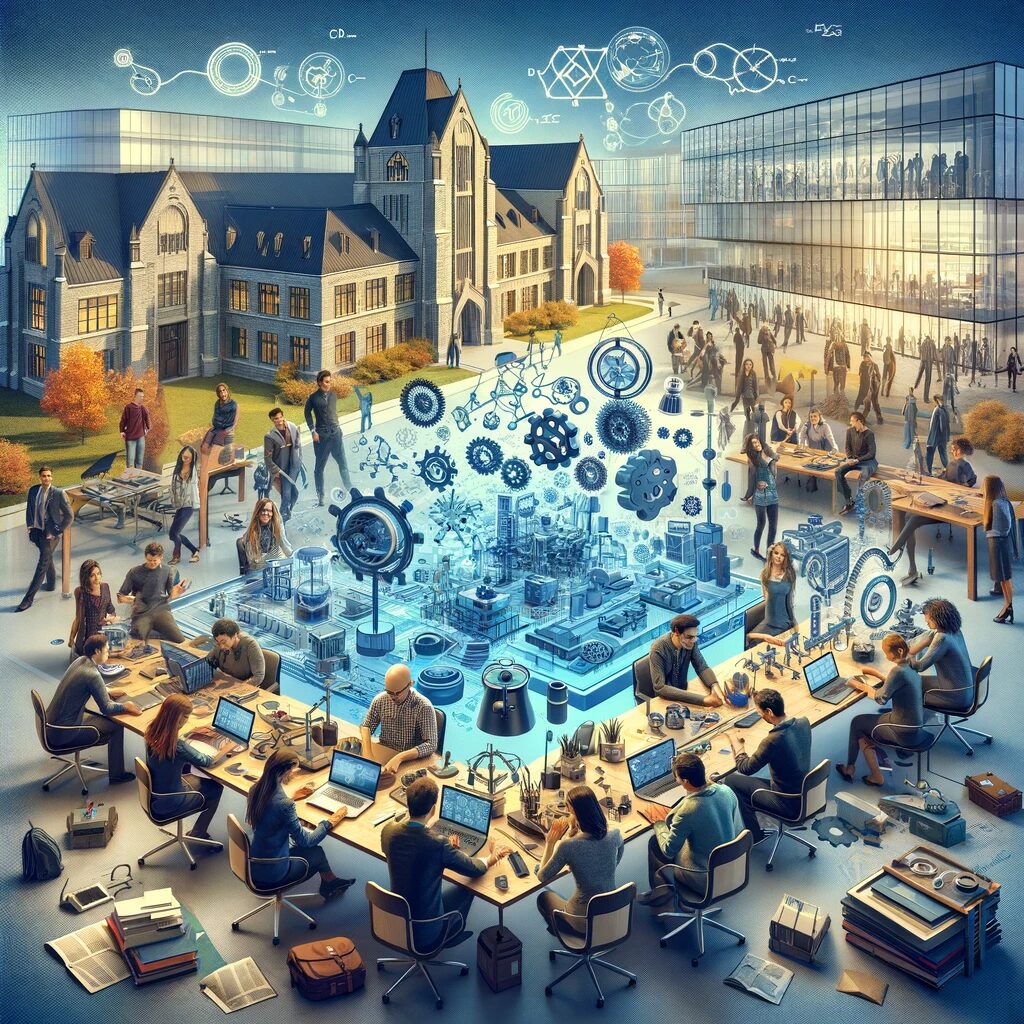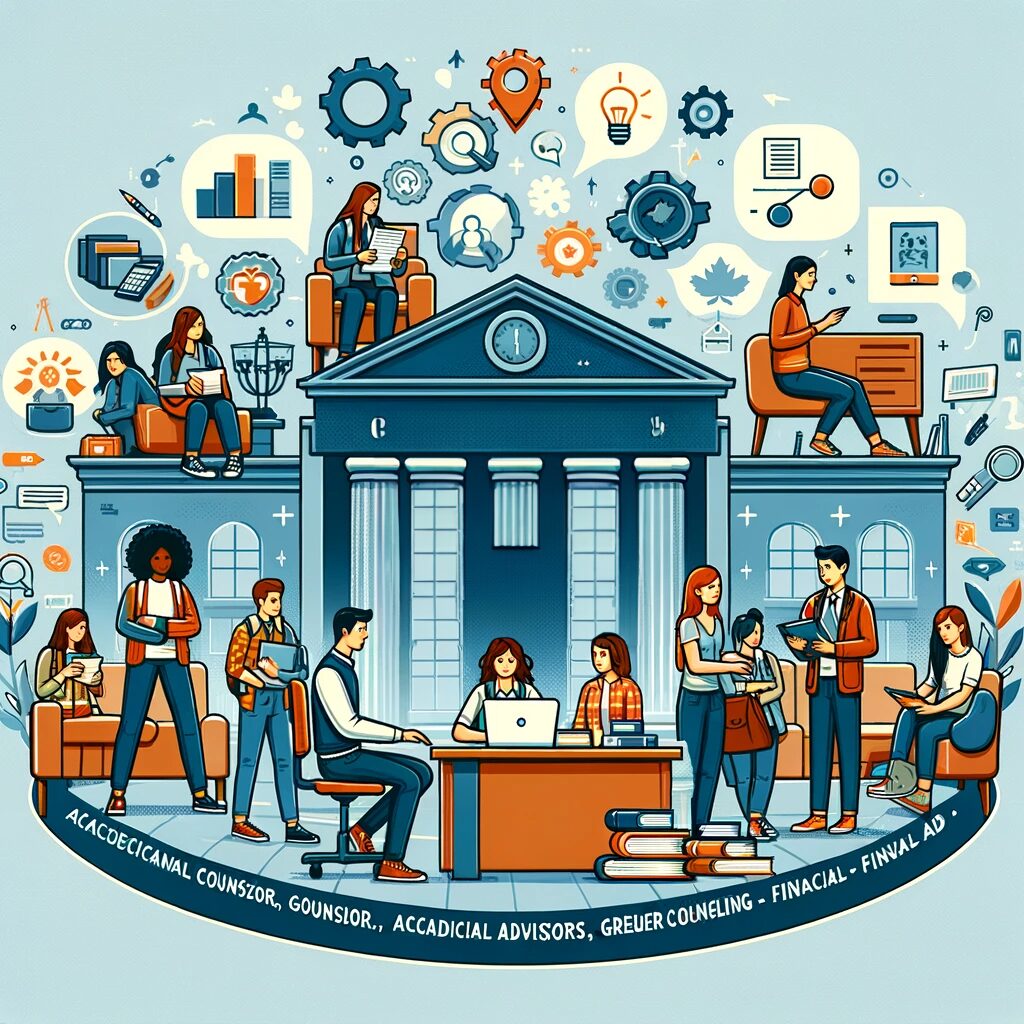
New Educational Landscape
The landscape of Canadian education is undergoing a pivotal transformation. Recent governmental policy shifts, notably the cap on international student intake, have introduced new challenges and opportunities, necessitating a strategic reevaluation within the education ecosystem. Understanding these shifts is essential for educational institutions to adapt effectively and maintain their competitive edge in a rapidly evolving global education market.

In-Depth Analysis of Government Policies
Policy Background and Rationale
These policy changes stem from a need to balance demographic challenges, economic needs, and educational excellence. They reflect a nuanced approach to managing the influx of international students while addressing the growing demand for skilled labor in specific sectors.

Detailed Policy Overview
The policies include a cap on international student intake, adjustments in funding models, and shifts in curriculum standards. Each policy is designed with a specific goal, such as enhancing the quality of education, ensuring equitable access to resources, or aligning educational outcomes with labor market demands.

Impact Assessment
For students, it may mean heightened competition and changes in available opportunities. For educators and institutions, the challenge lies in adapting to these changes without compromising educational quality. There’s a potential for both short-term disruptions and long-term improvements in educational outcomes.

Strategic Planning for Institutions
Educational institutions must embrace flexibility and innovation. Diversifying student recruitment strategies, exploring new revenue streams, and enhancing online education offerings are essential steps. This also involves rethinking traditional models of teaching and learning to align with a more digital, interconnected world.

Methodologies for Adaptation
Institutions should adopt robust methodologies for adaptation, including scenario planning, which involves preparing for various potential futures; engaging stakeholders in discussions about change and its implications; and continuous environmental scanning to stay ahead of further policy shifts or market changes.

Adapting to Policy Changes
Institutions must develop strategies to adapt to the recent cap on international student intake. This includes focusing on diverse student recruitment from various countries and enhancing support systems for domestic students.

Collaborative Policy Advocacy
Educational institutions are encouraged to engage in policy advocacy, promoting dialogue with policymakers for supportive and sustainable educational policies.

Enhancing Virtual Learning and Hybrid Models
With the increase in online education, institutions should enhance their virtual learning platforms, integrating high-quality digital content and interactive tools to engage students effectively.

Focus on Skill Development Programs
Emphasize the development of skill-based programs that align with current labor market needs, such as coding bootcamps and digital marketing courses, to address skill gaps and enhance employability

Expanding Community and Industry Engagement
Strengthen relationships with local communities and industries through community service programs, local internships, and practical training partnerships.

Student Well-being and Mental Health Programs
Implement robust mental health and well-being programs, including counseling services, peer support groups, and wellness workshops, to support the holistic development of students.

Incorporating Inclusivity and Cultural Competence in Curriculum
Suggest ways to integrate cultural competence and inclusivity in the curriculum, preparing students for a globalized world and ensuring an accessible and relevant education system.

Utilizing Advanced Analytics for Improved Decision Making
Use data analytics to understand student needs, improve teaching methodologies, and make strategic decisions, helping institutions to be responsive and well-equipped for future challenges.

Promoting Interdisciplinary Learning
Encourage the development of interdisciplinary programs that combine different fields of study, reflecting the interconnected nature of modern challenges and job markets.

Investing in Infrastructure and Technology
Embracing Digital Transformation
Institutions must embrace digital transformation to stay relevant. This includes integrating advanced learning management systems, adopting AI for personalized learning experiences, and utilizing virtual reality for immersive educational experiences.
Modernizing Physical Infrastructure
Alongside digital advancements, physical infrastructures such as libraries, laboratories, and collaborative spaces need modernization to support a blend of traditional and digital learning environments.
Ensuring Accessibility
Technology investments should prioritize accessibility, ensuring all students, regardless of their background, have equal access to learning resources.

Fostering International Collaboration
Building Global Networks
Encourage institutions to build networks with international counterparts. This involves creating student exchange programs, research collaborations, and faculty exchange initiatives.
Leveraging Online Platforms
Utilize online platforms to facilitate international collaboration. This can include joint online courses, international webinars, and virtual cultural exchange programs.
Creating a Global Campus
Strategies to transform campuses into global hubs, attracting students and faculty from around the world and encouraging a multicultural learning environment.

Enhancing Student Support and Industry Alignment
Comprehensive Student Support Systems
Develop systems that offer academic guidance, mental health support, career counseling, and financial advice. These systems should be accessible and tailored to meet the diverse needs of the student population.
Aligning with Labor Market Trends
Continuously analyze labor market trends and align educational programs accordingly. This involves offering courses and skills that are in high demand and fostering entrepreneurship and innovation within the student body.
Establishing Industry Partnerships
Create strong links with industry leaders to provide students with practical experience and insights into the workforce. This can be achieved through internships, co-op programs, and industry-led workshops.

Implementing Sustainable Practices in Education
Environmental Sustainability
Encourage institutions to integrate sustainable practices, such as energy-efficient campuses, waste reduction programs, and sustainable research initiatives.
Curriculum Integration
Advocate for the inclusion of sustainability topics in the curriculum, preparing students to be environmentally conscious leaders.
Community Engagement
Promote community-based sustainability projects, fostering a culture of environmental responsibility among students and staff.

Measuring Impact and Continuous Improvement
Impact Evaluation
Develop robust systems for measuring the impact of educational initiatives, using metrics like graduate employability, research output, and student satisfaction.
Feedback Mechanisms
Implement regular feedback mechanisms to gather insights from students, faculty, and industry partners, ensuring continuous adaptation and improvement.
Data-Driven Decisions
Emphasize the importance of data in guiding strategic decisions, advocating for the adoption of analytics tools in decision-making processes.

Conclusion and Future Outlook
As the Canadian education sector navigates these challenging yet opportunistic times, it is imperative to remain adaptable, innovative, and committed to continuous improvement. By investing in technology, fostering global partnerships, enhancing student support, promoting sustainability, and utilizing data for decision-making, educational institutions can build a resilient and dynamic ecosystem. This comprehensive roadmap not only addresses current challenges but also paves the way for a future where Canadian education is synonymous with excellence, inclusivity, and innovation.


